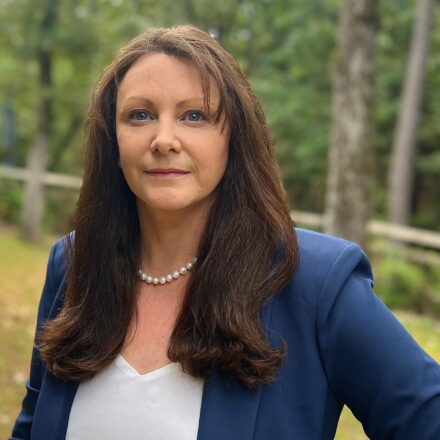Project Feasibility Review: Performing Due Diligence in the Early Stages of Development


Project Feasibility Review: Performing Due Diligence in the Early Stages of Development
When embarking on a new development project, whether it be as a equity investor, lender, or developer, conducting a project feasibility review is an important step for all parties. This process typically takes place during the initial stages of land acquisition and project configuration, serving as a comprehensive evaluation to help determine whether the proposed site and project is viable and worth pursuing. The goal of a feasibility review is to identify potential risks, costs, and challenges that could impact the success of the development, helping stakeholders make informed decisions from the outset.
Site Feasibility: Evaluating the Land
The land’s characteristics and existing conditions play an important role in determining whether a development project is feasible. This is where the site analysis comes in. It evaluates everything from land use regulations to environmental conditions, helping to assess the land’s potential for development. This includes, but is not limited to:
Land Use and Zoning
Planning and Zoning Review: A review of the local zoning laws and land use policies to determine if the proposed development is compliant with city or county regulations.
Off-Street Parking Analysis: Verifying that the development complies with parking requirements set by local zoning codes, which often include a certain number of parking spaces per square footage of building space or per dwelling unit.
Utilities and Easements
Utility Availability: Assessing whether necessary utilities such as sanitary sewer, stormwater infrastructure, domestic and fire water, electricity, and gas are accessible at or near the site or whether additional infrastructure is required.
ALTA Survey – Easements & Liens: Reviewing an ALTA (American Land Title Association) survey to confirm the presence of any easements or existing conditions on the property that could affect development plans.
Site Characteristics
Site Visit: A physical inspection of the site to evaluate existing structures, topography, and overall site conditions.
Geotechnical Findings: Understanding important information about the soil composition, groundwater levels, and potential challenges related to foundation and utility construction.
Flood Zone, Wetlands, Seismic Risk, Weather Conditions: Identifying whether the site is in a flood zone, contains jurisdictional wetlands, or is in a seismic risk area. Local weather conditions can also play a significant role in construction planning and performance of the asset.
Environmental and Community Concerns
Phase I Environmental Site Assessment (ESA): A Phase I ESA helps to determine whether any hazardous materials are present on the site, which may require remediation before construction can proceed.
Traffic Impact Analysis: Analyzing how the development will impact local traffic patterns and determining whether traffic studies are needed.
Archaeological Resources: Investigating whether the land contains archaeological or historical significance, which could result in restrictions or delays.
Endangered or Threatened Species: Ensuring that the site does not contain habitats for endangered species that would trigger legal constraints.
Summary of Proposed Improvements
This section of the feasibility report provides a snapshot of the proposed development, including detailed descriptions of the building and site improvements.
Building Improvements
A physical description of the planned building, including its size, layout, and any notable design features that could impact construction.
Site Improvements
Site Plan Review: A detailed review of the proposed site plan, ensuring it meets zoning, access, and other standards.
Site Access and Circulation: Analyzing the project’s access points and how traffic will circulate on and around the property.
Pavement Systems and Drainage: Ensuring the development includes appropriate pavement and drainage systems to manage stormwater and prevent flooding.
Off-Site Improvements: Identifying any off-site infrastructure improvements required, such as street widening or utility upgrades.
Development Schedule and Budget Considerations
Development and Construction Schedules
A preliminary development timeline is important for understanding how long the project will take. This will typically outline key milestones, including design approval, construction phases, and completion.
Budget Considerations
Development Budget: This includes an overview of the estimated costs for land acquisition, construction, permits, and other related expenses.
Construction Cost Comparison: A comparison of the projected construction costs with similar developments, contractor estimates, or cost data to ensure that the budget is realistic and achievable.
Contingencies: Estimating a contingency amount to cover unexpected costs that could arise during the development process.
Conclusion
Performing a project feasibility review at the land acquisition and/or early design stage is a critical step in the success of any development project. By carefully analyzing the land’s zoning, utilities, environmental concerns, and proposed improvements, stakeholders can make informed decisions about whether to move forward with the development or reconsider the project scope.
A well-executed feasibility review not only identifies potential risks and challenges but also provides a roadmap for overcoming them. By gathering all necessary information in the early stages, developers, investors, and lenders can set the project on a path to success—minimizing risks and maximizing the likelihood of a successful outcome.
By the Numbers:
1500 +
Projects
25 +
Years of Service
17 B
In Developments in 2023
50
States Served
Construction Services Leadership

Michael Raybon
Managing Principal
Michael Raybon is the Managing Principal of Pond, Robinson & Associates and brings 30 years of experience in the evaluation of existing facilities. Mr. Raybon has been the project engineer on thousands of projects involving all types of construction material forensic investigations. Over the last 15 years, Mr. Raybon has been an integral part of the operations and management of Pond, Robinson & Associates. In addition to previously conducting and reviewing property condition assessments and reports, Mr. Raybon has extensive technical expertise in evaluating the following construction materials: concrete, steel, masonry, stucco, roofing and waterproofing materials and membranes, sealants, coatings, and pavements. Mr. Raybon has been a registered Professional Engineer for 22 years.
Mr. Raybon has significant experience in both business management and client management. In his ownership role at Pond, Robinson & Associates, LP he interacts with real estate investors and corporate clients helping to coordinate evaluating the physical risk prior to real estate transactions or associated with operational issues.
Mr. Raybon has cultivated an understanding of site development, building construction administration, specifications, scheduling, and project management issues nationwide. Additionally, he has directed and managed consultants, contractors, and vendors to maintain schedules and budgets. In his role, Mr. Raybon has coordinated the engineering assessment of major projects located in many submarkets throughout the nation and reviewed the conclusions of specialty sub consultants for his clients on commercial office, industrial, retail, and multi-family properties.
Education
B.S., Materials Science and Engineering, University of Florida 1990
Registrations
Professional Engineer, Florida, 1998
Professional Engineer, Texas, 2009

Rebecca Fischer
Director of Construction Services
Rebecca L. Fischer is the Director of Construction Services at Pond, Robinson & Associates and brings over 25 years of facilities and construction consulting experience to the firm. Ms. Fischer has been involved in the design and construction of several new facilities, development and construction monitoring of large projects, and the assessment of existing buildings nationwide. She has over 21years of experience at PR&A working with our Investment and Asset Management clients on high profile development projects including high-profile resorts, office and residential complexes, and multi-family projects with total project costs of up to $935M. Through her experience with development and construction projects she has cultivated an understanding of site development, building construction administration, specifications, scheduling, quality assurance, cost control, and project management issues. She is a registered LEED® AP BD+C professional which has helped clients achieve their sustainability goals within their portfolio.
As Director of Construction Services, Ms. Fischer is tasked with client relations, coordination of services, mentorship and management of personnel, continuing education, and the quality maintenance of the construction related services and reporting. She is also actively involved in the construction administration and monitoring of several projects. Her years of experience allow here to add value for her clients related to budget, scheduling, quality control, and assessment of building components and design including the building envelope and accessibility.
Education
Bachelor of Science, Civil Engineering, Texas A&M University, 1997
Master of Engineering, Civil Engineering, Texas A&M University, 1999
Registrations
Professional Structural Engineer, Texas since 2003
LEED® AP BD+C since 2012

David Jones
Director of Real Estate Services
David Jones brings over ten years of well-rounded experience in design, construction, facility assessments and project management to Pond, Robinson & Associates. His role is to serve as bridge for clients, helping them understand and develop the right technical or project management approach to each investment or exchange. Mr. Jones has provided services to institutional real estate investors and lenders and many developers and contractors.
Mr. Jones has experience with property condition evaluations and construction observation and compliance reviews related to all asset types, including commercial office, industrial, retail, and multi-family improvements. His consulting experience includes comprehensive reviews of design documents for planned projects, performing evaluations of existing properties, and acting as the owner’s representative during the construction of properties of various sizes and complexities.
Education
Bachelor of Science, Construction Management, University of Houston, Houston, Texas
Registrations
Associate Constructor, American Institute of Constructors, License 10711
LEED® Green Associate™, Green Business Certification Inc. Credential ID 11131858
Discover the Impact of Our Work
Browse Our Website to Understand How Our Expertise Translates into Successful Outcomes for Our Clients.
Explore Now

Discover the Impact of Our Work
Browse Our Website to Understand How Our Expertise Translates into Successful Outcomes for Our Clients.
Explore Now